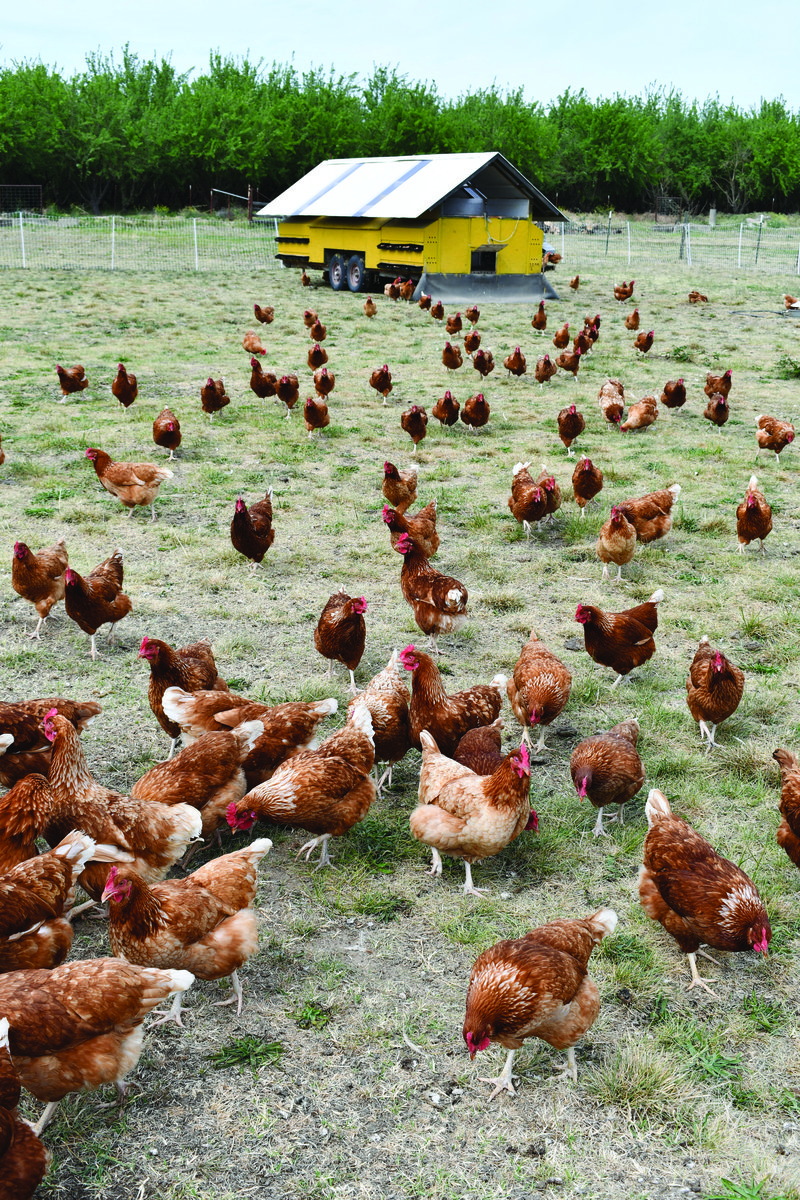BY ANNA GENASCI
Special to the Journal
Alexandria Miranda knew that taking care of animals, farming, working with the soil and with her hands was something she always wanted to do. And after earning a marketing and business degree from Fresno State and working a high-end marketing job for 20th Century Fox in Los Angeles she just didn't feel satisfied.
“I left the corporate world,” and came home to Turlock. She applied her marketing skills at RCD and NRCS and today she manages 600 pastured raised feathered employees at Hen and Harvest Farm.
In October 2020, Miranda began raising chickens, but that wasn't the original plan.
“I wanted to plant veggies, almost like a food forest, a you-pick, but after a class for new farmers I was so inspired, I bought three chicks on my drive home,” she said.
That was just the beginning.

Those three chickens turned into a few more, and then she added six ducks. With 18 animals in tow, and two kids, Alexandria and her husband Jaime moved to her parents' ranchette in Turlock.
Today Miranda has more than 600 birds and sells duck and chicken eggs in Turlock at Village Fresh Market, La Mo Cafe and Restaurant, 10 East Kitchen and Taphouse and Modesto Certified Farmers Market.
“In the beginning I had a waiting list for the duck eggs. I still sell out every weekend,” shared Miranda.
Now you may be asking the same question that I was thinking, “what is the difference between duck and chicken eggs?”
According to Miranda, the difference between duck eggs and chicken eggs are that duck eggs are more nutrient-dense, they're higher in good fats and proteins and savorier. And, apparently a baker's secret ingredient.
Miranda is raising her chickens and ducks in a less conventional manner, utilizing rotational grazing and hand collecting the eggs she spends time each and every day tending to her flock.
The ducks and chickens are fenced in with a solar-powered electric fence. Inside the fence is water, pools for the ducks, supplemental layer feed, and a mobile coop. Every few days, Miranda shifts the operation, so her feathered foragers have fresh pasture.
“My chickens and ducks are raised by my own hands on the farm and when they are old enough, they are moved out to over five acres of pasture. They lay their eggs in mobile coops that get moved every other day to fresh grass. This ensures the hens can forage naturally for bugs and grass while leaving behind their nitrogen rich manure. This method mimics the foraging nature of wild birds, all while building the health of our soils.”
Miranda’s vision doesn't stop here. She hopes to develop the property and has a conservation plan that includes trees, shrubs, hedge rows and ponds.
“I want to create a habit and environment that connects people to food,” she said.
Miranda is also developing her garden. A place where she hopes to have cooking demonstrations and classes about growing food and raising ducks and chickens. She wants to create a community where new farmers, people interested in homesteading and polyculture can find help and resources.
Polycultures are two or more useful plants grown on the same plot, usually at the same time. From an ecological perspective, they try to mimic natural cycles. Like natural systems, they offer benefits, including reduced pest damage and soil conservation.
But right now, her immediate plan includes raising her new 400, one-week-old chicks.
— Anna Genasci is the Farm News Editor for the Stanislaus County Farm Bureau.









